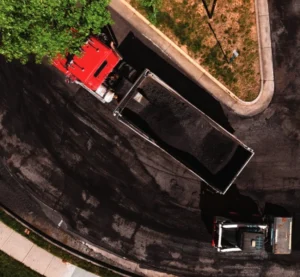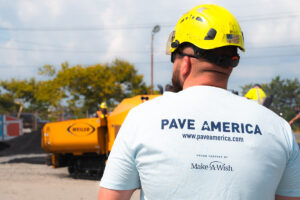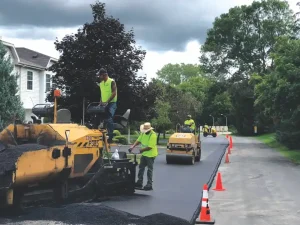The backbone of a well-functioning society relies on strong and durable infrastructure. Roads, bridges, and airport runways experience constant wear and tear from traffic and weather. To ensure their longevity and safety, engineers require robust construction materials. Cement-treated aggregate (CTA) emerges as a versatile and beneficial solution for various infrastructure projects, offering a unique combination of strength, performance, and economic advantages.
What is Cement-Treated Aggregate?
Cement-treated aggregate is a composite material specifically engineered for infrastructure applications. It consists of a meticulously proportioned blend of coarse aggregate (gravel, crushed rock), Portland cement, and water. The aggregate forms the structural skeleton, while the cement acts as a binding agent, hardening the mixture after compaction and curing. CTA can be mixed on-site using existing materials or produced in a central plant for larger projects, ensuring consistent quality control.
Superior Strength and Performance
One of the most significant advantages of CTA lies in its exceptional strength and performance. Unlike traditional unbound granular materials, CTA acts as a rigid layer, effectively distributing traffic loads over a wider area. This reduces stress on the subgrade, the underlying soil layer, preventing premature cracking and pavement failure.
In addition, CTA boasts superior resistance to environmental factors. Its cementitious nature makes it impervious to moisture infiltration, protecting the subgrade from water-induced weakening. CTA’s inherent rigidity also minimizes the impact of freeze-thaw cycles, a common cause of pavement deterioration in colder climates. This translates to a longer-lasting, lower-maintenance infrastructure solution.
Economic Advantages of CTA
Beyond its superior strength, CTA offers significant economic advantages for infrastructure projects. Since CTA can be formulated using readily available on-site materials, it can significantly reduce reliance on expensive imported materials, particularly in remote locations. This translates to cost savings during the initial construction phase.
CTA’s exceptional durability minimizes the need for frequent repairs and maintenance, leading to long-term economic benefits as well. The extended lifespan of pavements constructed with CTA reduces the frequency of road closures, saving time and money for businesses and commuters alike.
Applications of Cement-Treated Aggregate
The versatility of CTA makes it a suitable material for a wide range of infrastructure projects. Its exceptional load-bearing capacity and resistance to environmental factors make it ideal for road pavements, including highways, streets, and parking lots.
Similarly, CTA’s ability to withstand heavy loads and aircraft traffic makes it a preferred choice for airport runways and taxiways. Industrial sites and warehouses also benefit from the strength and durability offered by cement-treated aggregate for roadways within their facilities.
The Clear Choice for Long-Lasting Infrastructure
Cement-treated aggregate stands out as a compelling solution for various infrastructure projects. Its superior strength, exceptional performance in diverse weather conditions, and long-lasting properties make CTA a reliable and cost-effective choice. And by minimizing the need for imported materials and frequent maintenance, CTA contributes to sustainable construction practices.
As infrastructure development continues to be a priority, cement-treated aggregate should be viewed a valuable tool for building strong, durable, and economical infrastructure for the future.
Get the Best in High-Quality CTA Infrastructure Construction from the Experts at Pro-Pave!
At Pro-Pave Incorporated, we have a team of experts adequately equipped to handle your infrastructure project. No matter what your vision may be, or what kind of materials you want to use, we have the skills and expertise needed to do the job right.
For more information about cement-treated aggregate and its usage in municipal infrastructure projects, call us directly at 703-433-9500 or fill out our contact form today!




